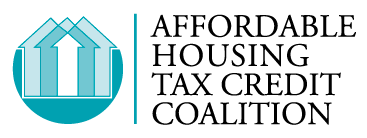Today we’re excited to introduce AHTCC’s State Spotlight blog series! On a regular basis, we’ll highlight an outstanding affordable housing development and the local impact of the Housing Credit in a specific state.
Today’s inaugural post features Canyon Crossing at Riverwalk, a newly constructed 10-building affordable housing community in Midvale, Utah which provides 180 homes for low-income families. The development was made possible through a $13 million Housing Credit investment by American Express syndicated by Enterprise Community Investment.
Housing Plus recently joined tenants and local leaders to celebrate the grand opening of the development, which represents the best of the Housing Credit’s public-private partnership model—bringing together local government, non-profit housing developers, community leaders and private investors to create an attractive, affordable and green housing development that serves residents and is an asset to the broader community.
Located just outside Salt Lake City, Canyon Crossing offers residents easy access to jobs and services and connects them to economic opportunity. Amenities at the development include a community room, computer room, exercise room and a community garden. The development also contains 3,700 square feet of commercial space which will serve as headquarters for the Utah Center for Neighborhood Stabilization, containing offices for Housing Plus, Utah Center for Affordable Housing and Utah Small Business Growth Initiative.
Speaking of small business growth, since its creation the Housing Credit has produced more than 23,000 homes and supported more than 26,000 jobs in Utah, mostly in the small business sector. And it’s boosted the state’s economy as well, generating nearly $2.5 billion in local income and $980 million in tax revenues to reinvest in communities.
Without the Housing Credit it is fundamentally uneconomic to develop housing affordable to hardworking low-income families, seniors, veterans and people with special needs in Utah (Nine of the Canyon Crossing apartments are set aside for independent adults living with physical disabilities).
The Housing Credit should be protected and expanded to keep up with the demand for affordable housing in Utah. Last September, state and local housing officials estimated Utah needed 44,000 more affordable homes just to meet the current need—a number that continues to grow. And more than 60,000 low-income families statewide are housing insecure (they pay more than half their monthly income in rent), which often forces impossible tradeoffs between necessary expenses like buying healthy food and going to the doctor.
Stable, affordable housing benefits residents’ social, economic and physical health. And by protecting and expanding the Housing Credit, Utah can create and preserve more homes like those at Canyon Crossing. In the process, it can improve the lives of its hardworking families, support local job creation, and boost its economy for the long term.



Comments are closed.